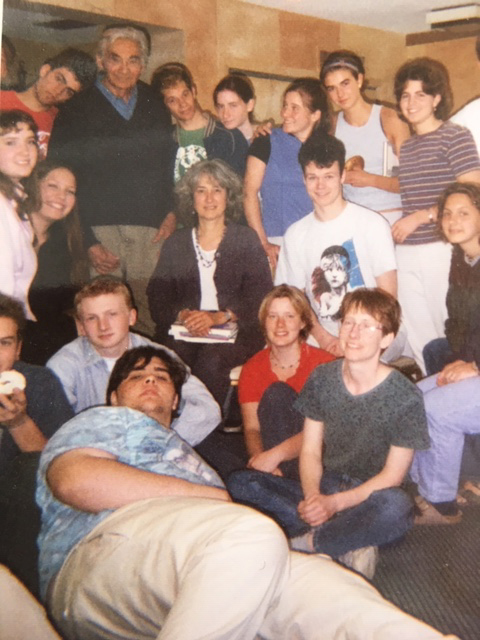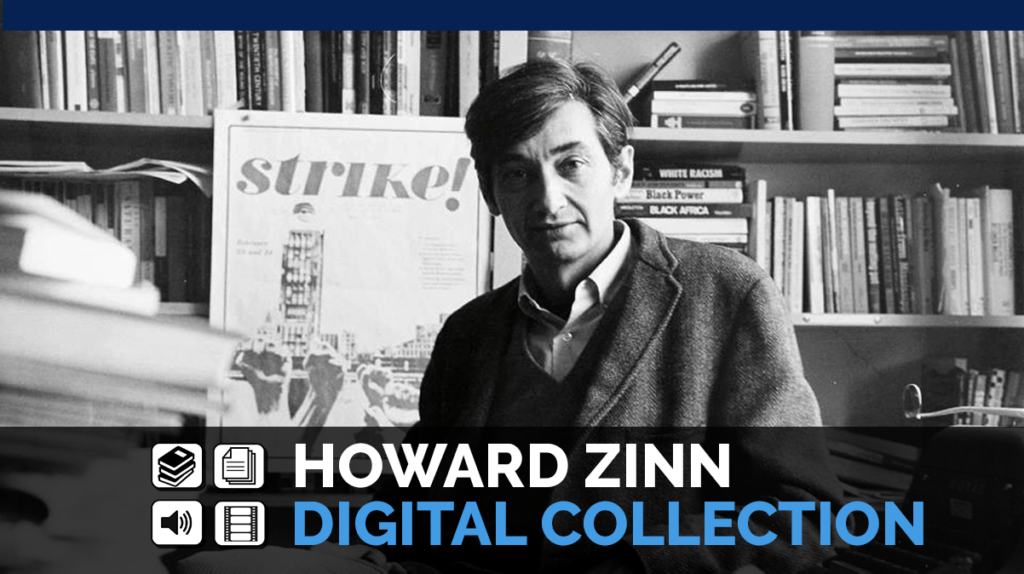
By Sheila Wilensky, published in the Arizona Jewish Post shortly after Zinn’s death.
Howard Zinn, the American historian who wrote A People’s History of the United States, died of a heart attack on Jan. 27 in California. He was 87.
A People’s History, published in 1980, became a best-seller that established Zinn as a central figure of the American left. Questioning the oft-celebrated role of historical figures such as Christopher Columbus, Zinn called attention to the disparity between economic classes, and illuminated the roles of labor leaders and war opponents. He celebrated the courage of individuals who stood up for average people — and usually weren’t mentioned in history books. A People’s History has sold more than a million copies worldwide.
Zinn, a New York City native who was the son of Jewish immigrants, was a dockworker before becoming a bombardier during World War II. After witnessing the deaths of fellow pilots, he began contemplating the nature of war. Following his stint as a pilot, he returned home and studied history at Columbia University, where he received his Ph.D.
I first encountered Howard Zinn in 1971, when I audited his Civil Liberties course at Boston University. One day he invited students to join him after class at a Vietnam protest on the Boston Common, and I went.
Impressed with Zinn’s fervent belief in the power of ordinary people to change the world, I decided to become a high school social studies teacher. Hardly a day has gone by since that I haven’t thought of Howard.
In 1993, when I owned the Oz Children’s Bookstore in Southwest Harbor, Maine, I invited Zinn to be a visiting author. Friends offered a cottage on the harbor to him and Roz, his wife and collaborator of more than 60 years. With my teenage children, Brook and Ethan, we walked by the sea, ate seafood and talked history and politics for three days. Howard became my mentor and friend.
In 1997 I returned to teaching social studies. I took my honors U.S. history students from Mt. Desert Island on an annual “intellectually challenging” weekend to Boston, where we were lucky enough to experience a give-and-take seminar with Howard.
My teaching philosophy came straight from You Can’t Be Neutral on a Moving Train: A Personal History of Our Times, Zinn’s memoir published in 1994: “I never believed that I was imposing my views on blank slates, on innocent minds. My students had a long period of political indoctrination before they arrived in my class — in the family, in school, in the mass media. Into a marketplace so long dominated by orthodoxy I wanted only to wheel my little pushcart, offering my wares along with the others, leaving students to make their own choices.”
A People’s History inspired a documentary in 2009 on the History Channel titled “The People Speak.” Zinn narrated the program, along with friends and well-known personalities, which highlighted those who spoke up for social change.
Howard didn’t possess an ounce of self-importance. And he was funny, warm and gracious. When he spoke at Brook’s college, he invited her to breakfast at the local diner. A few years later, he asked Ethan to join him for dinner with the president of his college.
The last time I saw Howard was in 2004 when I was in Boston covering the Democratic National Convention. He laughed when I told him about Tucson friends who named their dog, Zinn, after him. I will miss him, as will so many others.



